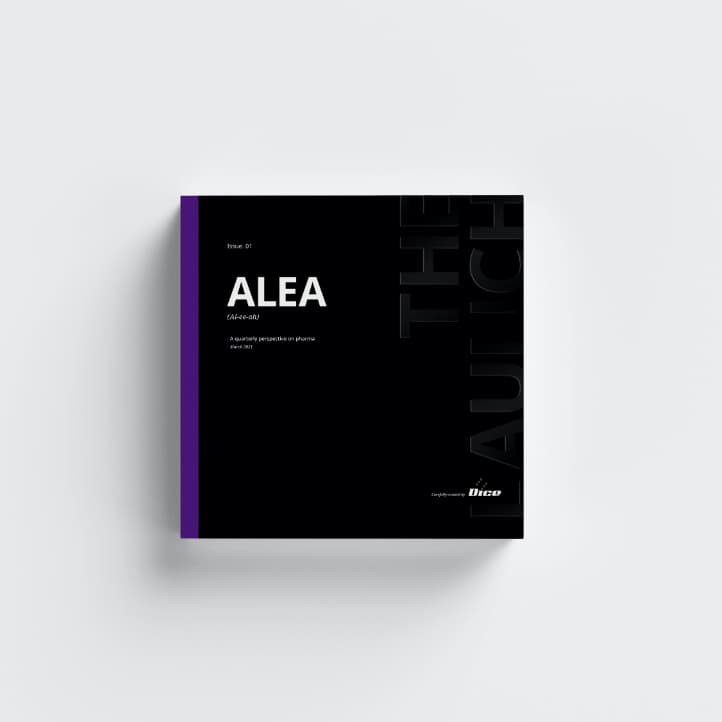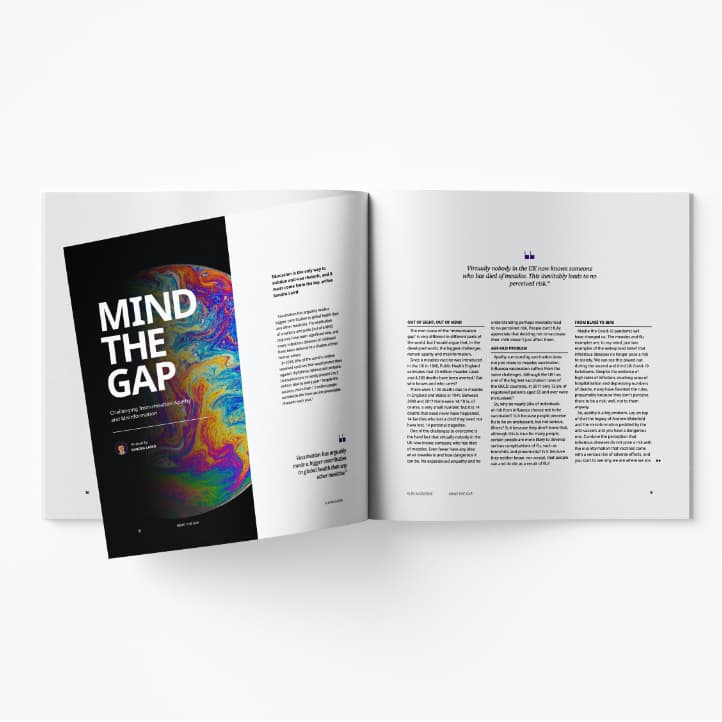
It Takes Two – Maximising the Client-Agency Relationship

No-one knows your business and therapies better than you, and nobody understands your audience the way you do either. So why do you trust an agency to deliver targeted messages and strategies, rather than doing it yourself?
Partnering with an agency to devise and deliver marketing strategies ensures key information is shared with your stakeholders in the right way, through the correct channels. A good agency will look at you as your customers do – considering patient management, the patient journey and the delivery of treatment.
You can read about an approach to marketing on any agency’s website, you can talk to their team, clients and possibly even the patients that have been specifically impacted. However, there’s just as much onus on you to get the most out of the relationship.
If you adopt the mindset that your agency works with you, rather than for you, you’re halfway there. It should be a partnership with one common objective: improving, or saving, the lives of patients. Because after all, that’s why you exist, why your therapy was developed and why you need to shout about it.
So, how well do you know your agency, and are you really using that relationship to your advantage? Here are a few things to consider.
TRUST
Marketing agencies are professionals in their field, but if you don’t trust their professional opinion, there’s little point to the relationship. Trusting your agency’s recommendations to push the boundaries and elevate you above the competition can not only produce truly amazing, valuable and impactful work, but it can be exciting and invigorating for all involved.
Trust your agency to recommend the best path in terms of marketing, expect them to ask questions and question the answers. If you’re engaging the services of an agency and they haven’t taken the time to truly understand you and your brands, it may be time to reconsider the relationship. In other words, find an agency that aligns with, or exceeds, your expectations.
PLAN & SPEND
It’s not customary for any marketing agency to ‘fly by the seat of their pants’, or advise you to do so! Alan Lakin suggested that planning is where you bring the future into the present so that you can do something about it now, and he’s not wrong.
Having a comprehensive, strategic plan can influence business performance, engagement and enthusiasm, all of which directly benefit you and your team, while reducing the opportunity for error. If your team is under pressure, there’s a higher likelihood of rushed decisions, errors of judgement and incomplete or inaccurate information being shared.
Budget shouldn’t ultimately affect the effectiveness of a campaign. Well planned and timed execution of marketing can be extremely impactful, and an agency should be able to work with you within any budget or time constraints. That’s what you’re paying them for, after all.
EXPECTATION & MANAGEMENT
Begin the relationship with your agency with discovery meetings to enable them to really and truly understand you, your brand and your values, as well as the needs of those who need your drugs and/or treatments. They should ask to be or be invited to meet all key team members, attend with questions relating to goals, and generally be engaged and interested in what you do and the impact it has.
Your agency should meet with you at regular intervals, not only to update you on progress and/or receive new briefs for marketing requirements, but also to remain informed and propose additional added-value marketing opportunities that you should be considering.
It’s fair to expect your agency to take the lead, to force deadline compliance and hold you accountable just as much as you do them. If they’re not doing this, and you’re leading the way, you might need to consider the value of your investment in their services.
COMMUNICATE
There is a great irony in any marketing and communications agency not… communicating. But it happens.
Be sure that your agency drives communication as much as possible; confirm to them that you anticipate that they will keep you informed of progress with regular updates and confirmation of agreed actions.
But it goes beyond literally making sure they talk to you – being open and honest with one another is just as important. This stems mostly from the relationship you have with them and vice versa; you should expect your agency to be demanding and ask questions, then ask even more. To be truthful if something isn’t clear, if information is missing, or if they have questions that need to be answered in order for them to deliver their expertise.
You should both feel comfortable to say when something isn’t ‘working’; it’s a two-way street, so be prepared to take on board the agency’s feedback too. However, the relationship shouldn’t revolve around them asking you what’s next. Any agency worth its salt should be proactively seeking opportunities to enhance their delivery, and telling you about it.
Be constructive and feedback regularly on how you think the agency is performing, how your experience is, and how it could be better. A good agency wants to know how they’re doing and how they can improve things.
CHEMISTRY
A difficult relationship will obstruct any progress with a marketing agency; be sure that the chemistry is right and that you are happy and comfortable with one another, that you feel you can question them and they you.
If a member of the agency’s team doesn’t work for you, make sure you’re addressing this. Consider, however, that if they’re asking questions, being demanding or firm with you, it may be to your benefit. There shouldn’t be discomfort at every meeting, but you should feel challenged and forced to consider everything when engaging with your agency.
Likewise, ensure your team is engaged and on board with the decision to appoint an agency, and your expectations of how that relationship will work. They may feel uncomfortable being challenged regularly, but if it’s positioned correctly ahead of the appointment, it should encourage their interaction and engagement with the agency.
Above all else, your agency should bring something to the table that you aren’t able to deliver yourselves; namely a perspective and observation of your brand as the customer sees and experiences it.
APPROVALS AND PERMISSIONS
Clearly define roles, responsibilities and authorities.
Much of the information you deal with on a day-to-day basis will be sensitive. With this in mind, it’s imperative that you confirm confidentiality and approval processes with your agency. A good agency will have considered this ahead of your first meeting, and it should be part of their everyday management and timelines.
Your agency should also have firm processes in place for planning, delivery and execution of marketing activities. They should take time to explain the creative process, so that everyone remains ‘on the same page’. This should avoid any frustration if the first iteration of work they deliver doesn’t quite hit the nail on the head.
In summary, any agency you engage with should be interested, informed, knowledgeable and skilled, but more than that, they should come to feel like part of your business rather than an outsourced supplier. Above all else, your agency should bring something to the table that you aren’t able to deliver yourselves; namely a perspective and observation of your brand as the customer sees and experiences it.
This is how we like to work at Dice – acting as a partner in our clients’ mission to transform lives; not just because it’s our job, but because we are genuinely invested in their work.






